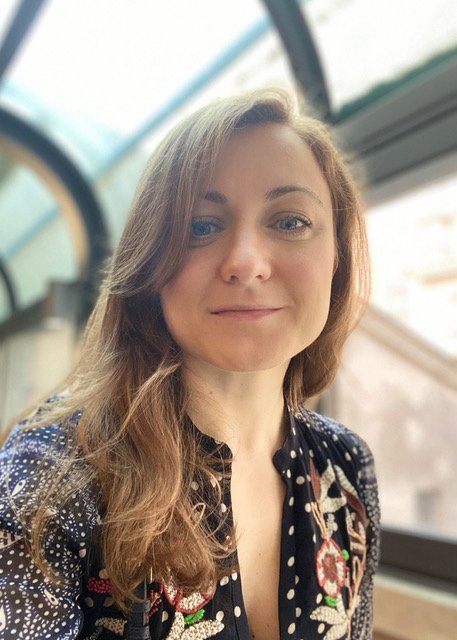
We welcome Anamaria Bentea to the Zukunftskolleg
Anamaria Bentea is one of our new Research Fellows from the 16th call for applications for fellowships. She has started her fellowship in August and is affiliated with the Department of Linguistics.
Anamaria completed her doctoral degree in General Linguistics at the University of Geneva. During her doctoral degree, she also spent a year as visiting doctoral student in the Department of Linguistics at the University of Maryland.
After completion of her doctoral degree, she was a postdoctoral researcher in the School of Psychology and Clinical Language Sciences at the University of Reading. “Here I had the opportunity to start a research programme in bilingual language acquisition thanks, in part, to a fellowship awarded by the Swiss National Science Foundation”, Anamaria reports. “I recently joined the Department of Linguistics at the University of Konstanz as a Marie Skłodowska-Curie Fellow and I continue working on language acquisition and processing in multilingual speakers.”
Her research project at the Zukunftskolleg tackles a central question in the field of multilingualism concerning the nature and the extent of cross-linguistic influence, that is, whether the various languages that a person is acquiring or speaking influence each other in a significant way. “Specifically, it investigates the development of the first (heritage) language in speakers with a migration background and the impact that the dominant (societal) language has on heritage language outcomes, as these have been shown to be highly heterogenous”, she explains. “The project thus aims to break new ground in our understanding of how the societal language interacts with and shapes the real-time comprehension and production of the heritage language in child and adult multilingual speakers. In doing so, the project focuses on Romanian as heritage language and compares the acquisition and processing of complex syntactic structures across various multilingual groups in Germany, the UK, and Romania. To this end, the project uses (i) visual world eye-tracking tasks to investigate online sentence comprehension as well as (ii) sentence production tasks in the heritage language. The systematic comparison across different groups of multilinguals allows to determine whether the presence (or absence) of similar linguistic properties in the majority language facilitates (or delays) the acquisition of the same properties in the heritage language. Therefore, if any differences emerge in the way the various bilingual groups comprehend or produce the heritage language, then these differences can be attributed to cross-linguistic influence from the majority language. The findings of the project can thus have important implications for theoretical models of bi/multilingual syntactic processing as they can shed light on how cross-linguistic influence might impact the cognitive mechanisms that implement grammatical operations (e.g. whether grammatical rules or constraints are represented independently or jointly for each language). Moreover, the project will have practical implications for heritage language teaching and, more broadly, for foreign language teaching. Understanding what aspects of heritage language development are affected by the dominant societal language can help develop teaching methods and materials which facilitate their acquisition in the heritage language.”
We wish her all the best for her fellowship at the Zukunftskolleg!
